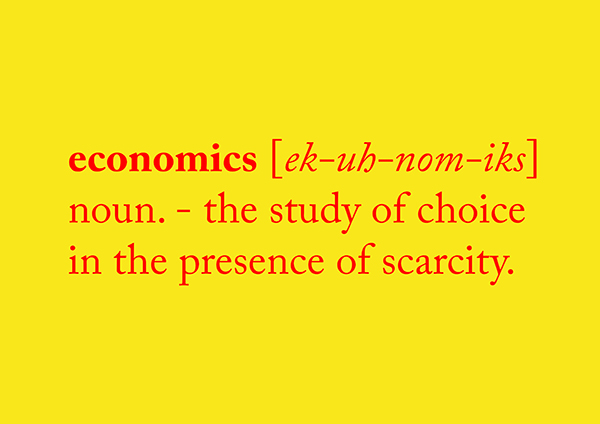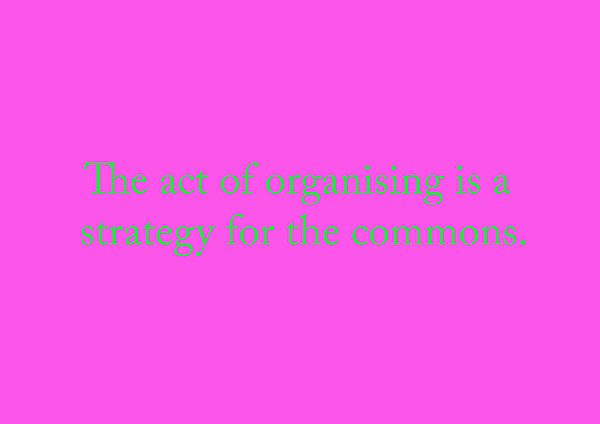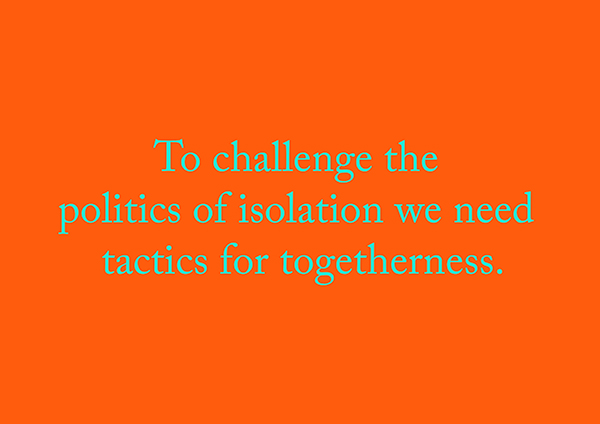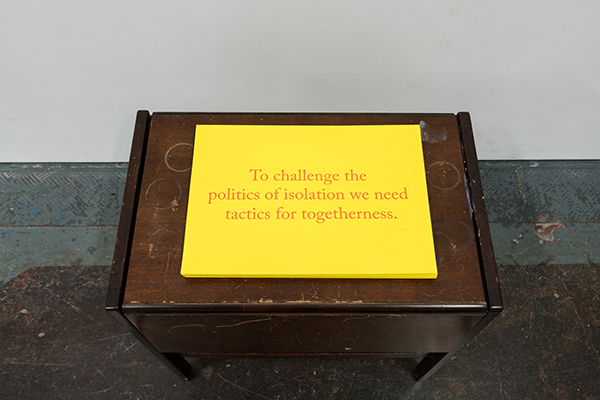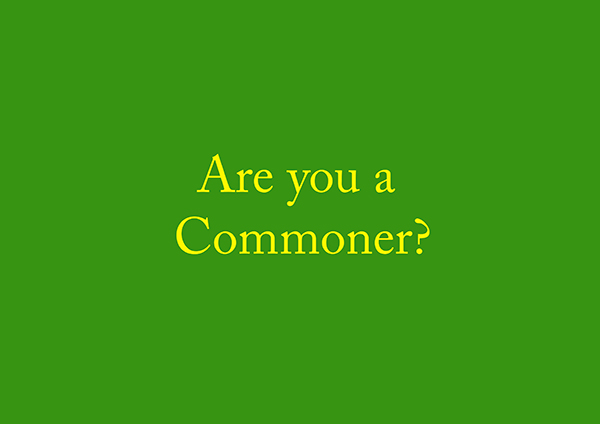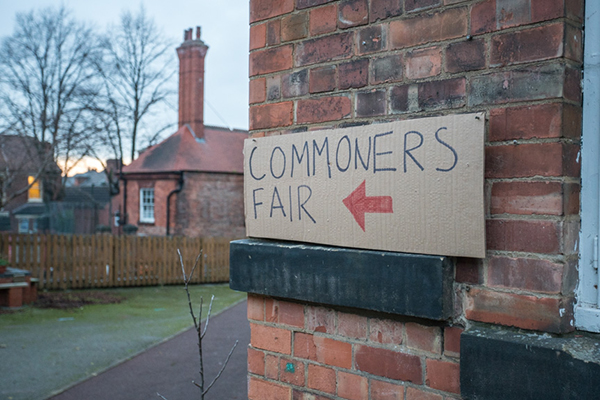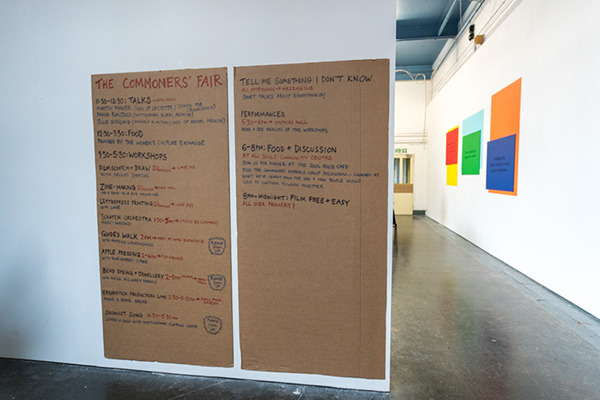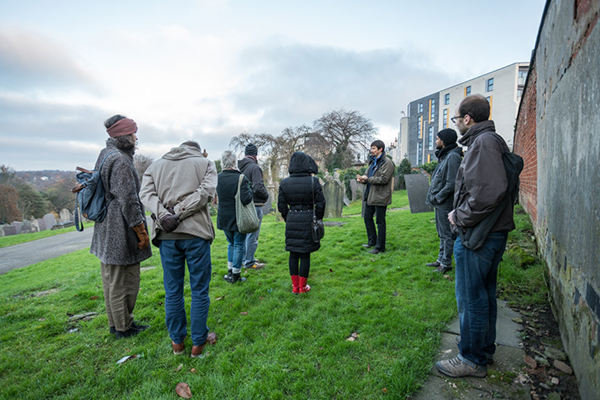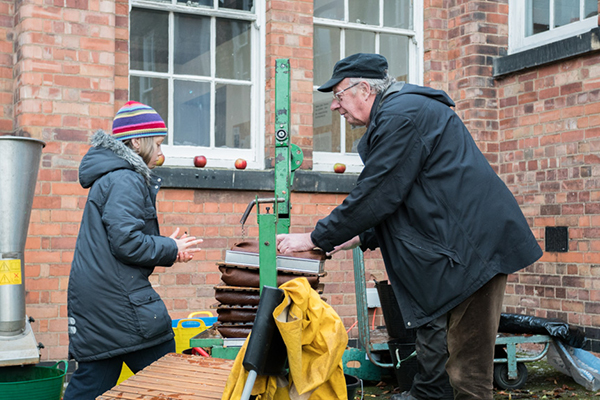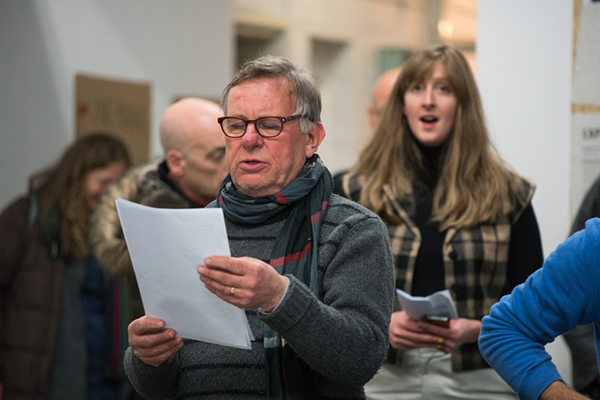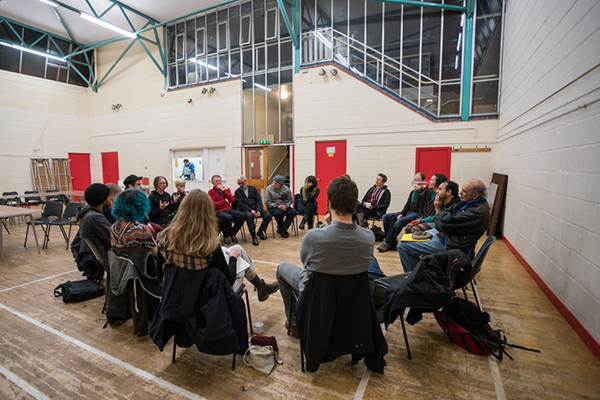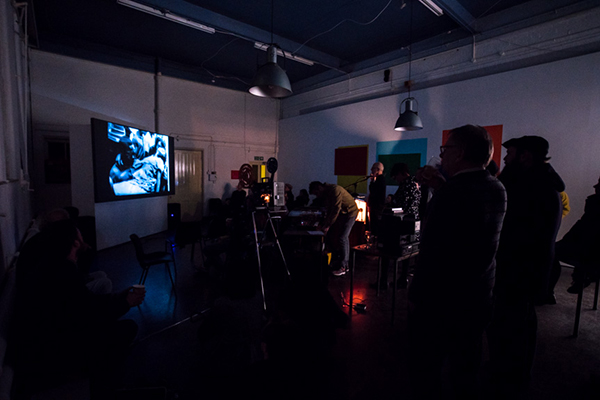--------------------------------------------------------
THE COMMONERS' FAIR
text, image, blog, exhibition, event, zine
2016
--------------------------------------------------------
The Commoners' Fair was a day of talks, conversation, performance, food and workshops exploring ideas of alternative economies and the sharing of knowledge within a community. It was one outcome of a commission that took place as part of Primary's Intersections programme throughout 2016.
The event celebrated the idea of ‘the Commons’ – the shared resources that are available to all of us - and what that means to our urban communities in the here and now, casting all participants as 'commoners'. The project asks: ‘What is it that everyone has that they can share? And how do we share it?‘
The work was developed through workshops, meetings and conversations over a 9 month period, with members of the Radford Skills Exchange and other local groups and initiatives. A group calling itself the Commoners Working Group formed as a result of the project and continues to meet regularly at Primary to continue working with the ideas raised by the project.
A series of blog posts were written across the course of the project, one of which is reproduced here:
Working Notes #3
A lot has happened since the last time I wrote a blog post for this project. Specifically, this very morning, what is still the most powerful country in the world has elected Donald Trump as President, so forgive me if that’s a shadow that is cast over my thoughts. These events -and closer to home the Brexit vote - underline, for the immediate consideration of all of us the question of what has gone wrong, and so what we can start to do in the here and now to bring about the change that we want to see.
The answer to that, for me, is to start doing things together. Not together within our own comfortable, like-minded, familiar networks but in situations where our core beliefs will be questioned and maybe shaken, and we will have to think about why we think what we think, and why other people who don’t share our views think what they think. To carve out spaces where people who don’t know each other, and don’t necessarily share views or backgrounds, can make time to listen to each other and help each other.
At the weekend I went to an event in Sheffield called Art Possibility Action, about the intersections of art and activism, and people who operate in those spaces. One of the speakers, James Marriott of Platform, said something which struck home:
‘The attempt to create spaces which are democratic, free, luminous and strong - that is a valuable act.’
This notion of collectively having the power to create grassroots, egalitarian spaces in our communities is something we need to hold on to, and celebrate. As the horror show grinds on, the mask is laid aside and it becomes increasingly evident that faltering systems of government will no longer be seen to support even individuals, let alone communities, which will have to help themselves as best they can. The simplest of exchanges - helping people you don’t know, and getting help yourself in return, without financial exchange - is the premise of the Radford Skills Exchange, and it was that which started me on the path of working with members of that group.
Projects like the skills exchange, though the ideas have been around for some time, now find themselves at the vanguard of new ways of understanding communities - in that they are already thinking about developing exactly the kind of non-financial networks and interpersonal connections that will become increasingly important the longer current systems of central government are allowed to play out. The difference now will be that as we go deeper into a time of crisis, confusion and chaos, these structures will come into their own as completely necessary in a way that has not been seen before.
It is all the more sad, then, but also exactly in keeping, to report that The Partnership Council, the organisation that currently oversees that group, is closing its doors at the end of December and, without another organisation to take it on, the skills exchange looks likely to fold also. This is a great shame for the 320 or so members of that group and I understand that conversations are underway to look for ways to avoid that happening.
So, as this project enters its final stages of preparation for the event at the end of the month, of which more below, this news, along with the global events of today, give an increased urgency to that original question of how we create spaces for people to come together and share skills, experiences and knowledge. Another attendee at last weekend’s event spoke of ‘making art to save our skin’ and that phrase has stuck with me also, as we increasingly require evolving tactics and togetherness to stay afloat, whether we are artists, activists or any other kind of citizen.
This project started out as an investigation into local alternative currency models. During the course of my time meeting individuals, groups and organisations in the area, the wider story to be told is about the idea of the Commons, how it manifests, and how it is understood by those who have a part to play in it, which is all of us, whether we know it or not. That is what has informed the bringing together of individuals, groups and organisations for the Commoners Fair. Given wider events that have played out as this project has progressed means that developing tactics of togetherness has become a necessity, and I hope that the Commoners Fair is something that can be understood in those terms, as an attempt to bring people together and ask ‘what next?’.
